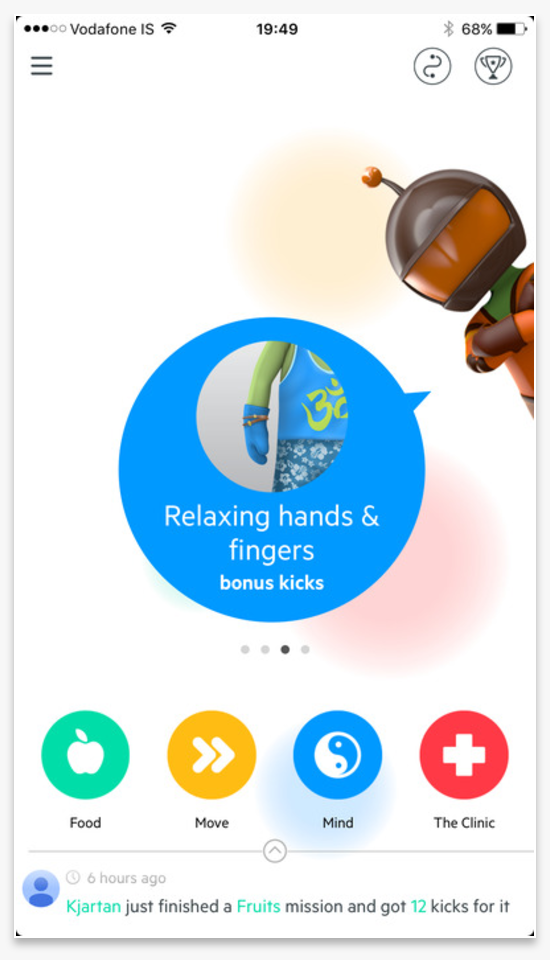 Digital coaching and a gamified approach to healthy lifestyle choices may be a powerful tool in managing chronic conditions, according to new data from health engagement platform provider GoodlifeMe, which makes SidekickHealth.
Digital coaching and a gamified approach to healthy lifestyle choices may be a powerful tool in managing chronic conditions, according to new data from health engagement platform provider GoodlifeMe, which makes SidekickHealth.
SidekickHealth is a suite of online, customizable wellness and disease prevention programs for providers and employers. The web or-mobile-based programs offer personalized coaching, games and diet and exercise tracking based on each individual’s specific health needs, and are used as part of many CDC-recognized diabetes prevention programs. It is based on brain research and gamification technology developed in collaboration with experts from Harvard and MIT, and is accessible either online or through a mobile app.
“Our brains don’t always work to make logical choices. So we developed SidekickHealth to activate the emotional triggers as well as the logic of decision-making,” SidekickHealth CEO and cofounder Dr. Tryggvi Thorgeirsson said in a statement. “It’s a new approach that is getting results far beyond those achieved with coaching alone. While our initial focus has been in the area of diabetes prevention, the same principles apply to improving the management of chronic illnesses that are lifestyle related, like obesity and hypertension.”
Over the past year, SidekickHealth was deployed across many in-person, community-based diabetes prevention programs across the country including several for populations with added challenges such as language barriers or old age. When using SidekickHealth, DPPs saw improved treatment compliance and reduction of diabetes compared to those who did not use the game, with Sidekick users up to three times more likely to reach their five percent weight loss goals within 16 weeks. They were also 30 percent less likely to drop out of their DPP.
“We are seeing that a program like SidekickHealth combined with personal coaching is the key to motivating people to make significant changes in their behavior, even those groups who have been challenged by genetic pre-disposition, social or economic disparities,” Thorgeirsson said in a statement.
SidekickHealth’s programs allow users to make commitment contracts for certain behaviors like skipping soda or increasing vegetable consumption, and also offers mindfulness exercises that are powered by artificial intelligence and evidence-based guidelines from the CDC. On average, people have six to eight interactions with the program per day, seven days per week.
Along with providing a way for employers to offer wellness and disease prevention programs to their employees, SidekickHealth is also intended to complement in-person DPP programs. Those who partnered with SideKickHealth did so to make their programs more scalable by reaching populations where access to healthcare or transportation may be poor, but smartphone use is high. Additionally, the use of images and games cut through many cultural differences or social disparities that could act as barriers to patient engagement.
“With SidekickHealth, we can maintain the high-touch relationships that are especially important to low-income participants,” Marlayna Bollinger, founder and executive director of San Diego-based DPP Skinny Gene Project, said in a statement. “We can modify the program to make it culturally relevant and ensure information is not just received; it's understood. In groups that are at high risk for diabetes, like Hispanics and Native Americans, SidekickHealth has been especially effective in helping people lower their risk for diabetes.”














